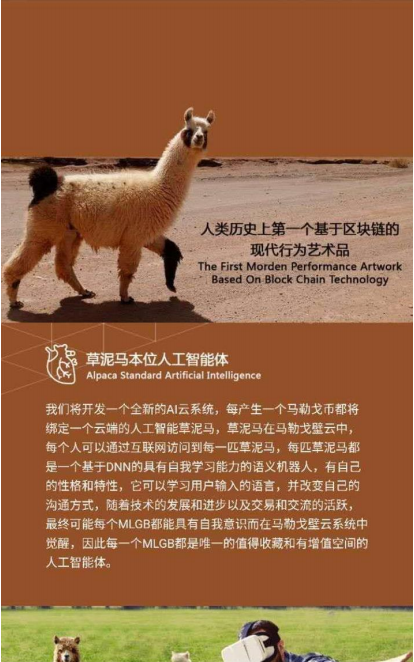Tim Swanson examines Chinese ICOs and other blockchain-related iniquities
Former R3 head of market research is now launching his own advisory firm, Post Oak Labs.

Cryptocurrency expert Tim Swanson has published a forensic report focused on blockchain, cryptocurrency and token selling iniquities.
Swanson, formerly head of market research at DLT banking consortium R3, is now launching his own advisory firm, Post Oak Labs, which is behind the report.
It begins by asking, who will be the Harry Markopolos of cryptocurrency? For those that don't know, Markopolos was the forensic accountant and financial sleuth who detected Bernie Madoff's fraudulent activities long before the authorities did, but nobody would listen to him.
The cryptocurrency community condemned Chinese authorities for the recent blanket ban on fundraising and secondary market listing of ICOs. However, Swanson finds the People's Bank of China and other regulators involved in the ICO crackdown to be wholly justified.
"Some ICO creators and trading platforms were taking funds they received from their ICO and then re-investing those into other ICOs, who in turn invested in other ICOs, and so forth; creating a fund of fund of funds all without disclosing it to the public," he said.
As some may know, in China and in South Korea, and several other countries including the US, there is a new cottage industry made of up entities called "community managers" (CM) wherein an ICO project hires an external company (a CM) who provides a number of services.
For a certain amount of Bitcoin, the CM will actively solicit and get your coin listed on various exchanges; the CM takes a sales commission while marketing the coin to the public such that after the ICO occurred, they would take a juicy cut of the proceeds; and several other promotional services.
The ICO issuers and fundraising/marketing teams usually organise a bunch of ICOs weekly and typically employ a market maker whose role is to literally pump and dump the coin. They engage in "test pumps" and "shakeouts" to get rid of the larger ICO investors so they can push the price up on a thin order book by 10x, 20x, or 30x before distributing and pulling support, states Swanson.
"You can hire the services of one of these traders in many of the cryptocurrency trading chat groups. There were even ICO boot camps in China (and elsewhere) usually setup with shady figures with prior experience in pyramid schemes."

This is the stuff of boiler room documentaries, notes Swanson. "The ICO rackets have recreated many aspects of the financial services industry (underwriters, broker/dealers) but without any public disclosures, organisational transparency, or financial controls."
China was seeing about sixty ICO crowdfunding platforms each launching (or trying to launch) new ICOs on a monthly basis. More than 100,000 Chinese investors acquired new cryptocurrencies through 65 ICOs in January-June 2017, reported Reuters. According to Chainalysis, at least $225m worth of ETH has been stolen from ICO-related fundraising activity this past year.
Many of these platforms also ran and operated their own exchanges where insiders were pumping (and dumping) and seeing returns of up to 100x on coins that represented "social experiments to test human stupidity".
Swanson said: "It's still unclear what the final straw was, but the universal rule of don't-pitch-high-risk-investment-schemes-to grandmothers-on-fixed-incomes was definitely breached. As a result, the PBOC and other government entities in China are now disgorging any funds (about $400 million) that ICOs had raised in China.
"This number could be higher or lower depending on how much re-hypothecation has taken place (e.g., ICOs investing in ICOs). All crowdfunding platforms such as ICOAGE and ICO.info have suspended operations and many have shut down their websites."
Cryptocurrency exchanges (the ones that predated the ICO platforms) have to delist ICOs and freeze plans from adding any more at this time. Multiple ICO promotional events, including those by the Fintech Blockchain Group (a domestic fund that organised, promoted, and invested in ICOs), have been cancelled due to the new ban.
Several well-known promoters have "gone fishing" overseas, warns the report. This past week, Li Xiaolai, an early Bitcoin investor and active ICO promoter, has publicly admitted to having taken the ICO mania too far (using a car acceleration example), an admission many link to the timing of this crackdown and ban.
Swanson also called on journalists to take more care with this stuff and adopt a forensic approach.
"Keep in mind this is (mostly) just one country described above. It would be a mistake to pin all of the blame on just the ICO operators based in China as similar craziness is happening throughout the rest of the world (observe the self-serving celebrity endorsements).
"There may be a legitimate, legal way of structuring an ICO without running afoul of helpful regulations, but so far those are few and far between. Similarly, not everyone involved in an ICO is a scammer but it's more than a few bad apples, more like a bad orchard," he said
© Copyright IBTimes 2025. All rights reserved.






















